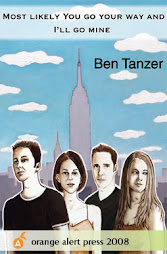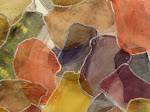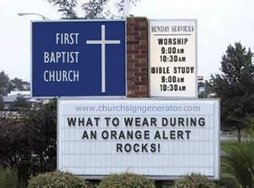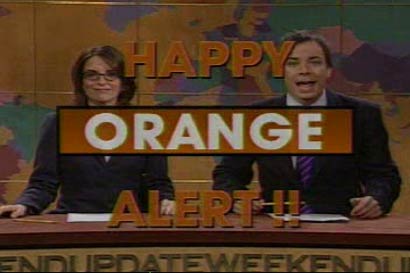
Stephen Morse
The image of the cowboy, rough and rugged, roaming through prairies, and riding down dusty mountains with guns blazing, is a long standing image in American history. Terms like renegade and rebel swirl as the average American's perception of freedom is born. So how does the image of the cowboy translate to the poet? On so many levels, the poet is the outlaw, the rebel voice refusing to sit silent and watch the world go by. The poet captures words and thoughts and corals them onto a single white page. They roam the fringe and rarely find the acceptance they deserve.
Minnesota poet Stephen Morse has long been a pivotal voice in the small press and an outlaw poet. Not only has he created a lifetime's worth of words, but he has also given a home and a voice to many aspiring poets. As the founder of Juice Magazine back in the '70's he has published some of the best underground poets over the years, and continues to seek out the voices hiding just below the surface. He has embraced the image and temperment of the cowboy, and to this day he continues to explore the unknown lands and unexplored boundaries of the written word.
Recently, Stephen was kind enough to answer a few of my questions.
Orange Alert (OA): Having been a viable force in the small press for the last forty years, what is the biggest difference in the small press today, as compared to when you published your first piece?
Stephen Morse (SM): The biggest difference I notice today is in the ability of the small press to distribute their publications.
When we started Juice we were taking advantage of a technology ---The AB Dick and Paper Plates--- that made printing cheap and gave us a chance to publish (in black and white) a decent looking product; saddle stitched with good cover stock and the ability to use camera ready graphics at no extra cost. Graphics yea!
And we thrived with talented poets because we were plugged in to other publishers like Hitchcock at Kayak who was more than happy to put a little notice about Juice in his outgoing mail, which included their acceptance and rejection mail. It was all postal of course. We exchanged the favor. So, there was no problem right from the beginning getting quality work.
Hitchcock was probably the best known independent publish for poetry at the time. There weren't any lists of small publishers at the time. It all grew out of networking. Later Dustbooks put together some helpful directories, but poets were desperately seeking publishers willing to take a risk, so any new magazine was immediately inundated by the power of word of mouth sharing. I sold a list of magazines and editors that I knew were willing and able to publish poetry that they liked for a buck. I think there were 50 that I recommended. Amazing how many takers there were. It helped pay for some of the costs.
But distribution was the stumbling block. There were a few stores that would take them on consignment, a number of libraries that would subscribe, and a few individual subscribers. But mostly we gave them away to get them out there..The web has changed all that. The word of mouth is now multiplied by any mouth that wants to speak. There are networking organizations like my space, I have a website, a couple of blogs and a discussion forum and easily reach thousands of people a day, and there are people who care enough to contribute financially to help cover our costs.
Many of the publications are online only, and the quality is erratic, but democratic. There's poetry out there for every taste...some of it seems good. Some of it is weird. But that is what the small press is all about. There are people who care enough to do something. They do the best they can, and they are independent as hell. That part hasn't changed at all.
OA: As a poet who has been published both in print and on-line, and as the editor of Juice On-line, do you feel being published on-line has the same legitimacy as print journals?
SM: That's a good question. Or at least a good question to get out of the way. The purpose for publishing a poem for me was that it preserved a poem or a poet's work by publishing it and getting it out to the public. I like print. I like to look at poems in a book. It's portable, I can pass it around. I can sell my books when I read my poetry. The printed product can be signed and become a collectors item.
But I've never received much feedback from printed work. People tend to set it on a shelf and forget about it. They may have some thoughts about a poem, but there's no easy way to hunt the poet down and give them to him or her. After awhile I became tired of the ego game of having a book. I'm guessing that maybe three or four hundred people read the poems in the print versions. I know none of them ever reacted or responded.
Compare that to online and you get a different picture. I know that about 50 people a day read the work on Juice online, most of them are new people, that's about 36,000 readers a year or about 900 times more readers for the poems. Now, since my objective is to preserve and promote poets and their poetry, I'd have to say that online poetry is a much more effective tool, and I can do a lot more with it. Straight online bothered me though because it lacked the tangible, hold it in the hand quality which is very satisfying. So we do something a little different. We put the online on CD at the end of every year, and all contributors receive a copy. This they can pass around and share with their friends and family.
Back to the legitimacy issue which has to to do with reputations, status, and ranks in the world of literature. Given the current state of affairs where anyone can publish a book, mag, or whatever on LuLu for no cost, I'd have to say that print has lost a lot of the built in legitimacy that it had. It really matters more who the editor and publishers are...if you want to play that game. I'd say that the same is true of online publications, but I feel they must create a CD or other storage device to really be in the same league. There are some very strong online mags who are very worthwhile being published in because the right people read them.
So online, print, in terms of legitimacy, are about the same for me as media. But it's the content that makes or breaks them.
OA: In your opinion, is poetry a product? If so, how can we make it more marketable? Is the ultimate role of a poem to be bought and sold?
SM: Poetry is a process, a way of seeing and way of being that produces a product. Just as a piece of Art is a product.
I see a couple of good marketing approaches going on right now. The most common method of marketing is to market the poet, not the poetry. Ginsberg, Kerouac, Snyder, Bukowski, S. Plath, Raindog, and even I to a certain extent are known as much by our created identities as we are by our poetry. I know a lot Kerouac fans that haven't even read Kerouac. But they like who he was. Create an artistic persona and promote him/her. Sells a lot of books.
The second method I see involves more around product. Michele McDannold is the most innovative I've seen of this school. She creates products to contain the poetry, reminiscent really of Emily Dickinson's packets of poems that she tied together with ribbons and threw out the window for passersby. Michelle takes the packet concept even farther. Her most recent project involves a cigar box, a match book, and well we'll have to wait and see what she does with my dozen crow poem chapbook. This method of marketing puts the emphasis back on the poem as a product or a production. I really like it.
No, the selling of a poem is not a role of poetry, at least not for money. Most poets would not mind the money, but few write for it. The ones who make the most money are sadly not the ones who write the best poetry.
OA: Growing up with and running in the same circles as the West Coast beat poets, was there a feeling at the time that something significant was taking place? Was there anyway to know the legacy or legend would be what it is today?
SM: Yeah, we knew we were doing something. Something with energy and a worldwide synchronicity. It felt like the American Revolution must have to us and the world. It just seemed to be a massing of the collective consciousness. The time was right for something new. We saw ourselves as revolutionaries of sorts. Poetry, the Arts and Music, and all the other arts and crafts were all magic and the groundwork for a new way of being.
An alternative life style was possible, based on art and love. We competed like crazy in ways that weren't destructive and there weren't really winners, just some people that didn't get it. See if you're doing something that isn't practical, I.e.; making lots of money or providing for the material world in the world in some way that accumulates the respect of gaining things that your neighbor has, then what use is it? The straights and hips were in an unprecedented conflict and we loved it. We could do our thing as long as we didn't hurt anyone directly and it probably looked like fun.
This freedom and the new cheap technologies for printing created a creative fire storm of possibilities.
Stephen Morse (SM): The biggest difference I notice today is in the ability of the small press to distribute their publications.
When we started Juice we were taking advantage of a technology ---The AB Dick and Paper Plates--- that made printing cheap and gave us a chance to publish (in black and white) a decent looking product; saddle stitched with good cover stock and the ability to use camera ready graphics at no extra cost. Graphics yea!
And we thrived with talented poets because we were plugged in to other publishers like Hitchcock at Kayak who was more than happy to put a little notice about Juice in his outgoing mail, which included their acceptance and rejection mail. It was all postal of course. We exchanged the favor. So, there was no problem right from the beginning getting quality work.
Hitchcock was probably the best known independent publish for poetry at the time. There weren't any lists of small publishers at the time. It all grew out of networking. Later Dustbooks put together some helpful directories, but poets were desperately seeking publishers willing to take a risk, so any new magazine was immediately inundated by the power of word of mouth sharing. I sold a list of magazines and editors that I knew were willing and able to publish poetry that they liked for a buck. I think there were 50 that I recommended. Amazing how many takers there were. It helped pay for some of the costs.
But distribution was the stumbling block. There were a few stores that would take them on consignment, a number of libraries that would subscribe, and a few individual subscribers. But mostly we gave them away to get them out there..The web has changed all that. The word of mouth is now multiplied by any mouth that wants to speak. There are networking organizations like my space, I have a website, a couple of blogs and a discussion forum and easily reach thousands of people a day, and there are people who care enough to contribute financially to help cover our costs.
Many of the publications are online only, and the quality is erratic, but democratic. There's poetry out there for every taste...some of it seems good. Some of it is weird. But that is what the small press is all about. There are people who care enough to do something. They do the best they can, and they are independent as hell. That part hasn't changed at all.
OA: As a poet who has been published both in print and on-line, and as the editor of Juice On-line, do you feel being published on-line has the same legitimacy as print journals?
SM: That's a good question. Or at least a good question to get out of the way. The purpose for publishing a poem for me was that it preserved a poem or a poet's work by publishing it and getting it out to the public. I like print. I like to look at poems in a book. It's portable, I can pass it around. I can sell my books when I read my poetry. The printed product can be signed and become a collectors item.
But I've never received much feedback from printed work. People tend to set it on a shelf and forget about it. They may have some thoughts about a poem, but there's no easy way to hunt the poet down and give them to him or her. After awhile I became tired of the ego game of having a book. I'm guessing that maybe three or four hundred people read the poems in the print versions. I know none of them ever reacted or responded.
Compare that to online and you get a different picture. I know that about 50 people a day read the work on Juice online, most of them are new people, that's about 36,000 readers a year or about 900 times more readers for the poems. Now, since my objective is to preserve and promote poets and their poetry, I'd have to say that online poetry is a much more effective tool, and I can do a lot more with it. Straight online bothered me though because it lacked the tangible, hold it in the hand quality which is very satisfying. So we do something a little different. We put the online on CD at the end of every year, and all contributors receive a copy. This they can pass around and share with their friends and family.
Back to the legitimacy issue which has to to do with reputations, status, and ranks in the world of literature. Given the current state of affairs where anyone can publish a book, mag, or whatever on LuLu for no cost, I'd have to say that print has lost a lot of the built in legitimacy that it had. It really matters more who the editor and publishers are...if you want to play that game. I'd say that the same is true of online publications, but I feel they must create a CD or other storage device to really be in the same league. There are some very strong online mags who are very worthwhile being published in because the right people read them.
So online, print, in terms of legitimacy, are about the same for me as media. But it's the content that makes or breaks them.
OA: In your opinion, is poetry a product? If so, how can we make it more marketable? Is the ultimate role of a poem to be bought and sold?
SM: Poetry is a process, a way of seeing and way of being that produces a product. Just as a piece of Art is a product.
I see a couple of good marketing approaches going on right now. The most common method of marketing is to market the poet, not the poetry. Ginsberg, Kerouac, Snyder, Bukowski, S. Plath, Raindog, and even I to a certain extent are known as much by our created identities as we are by our poetry. I know a lot Kerouac fans that haven't even read Kerouac. But they like who he was. Create an artistic persona and promote him/her. Sells a lot of books.
The second method I see involves more around product. Michele McDannold is the most innovative I've seen of this school. She creates products to contain the poetry, reminiscent really of Emily Dickinson's packets of poems that she tied together with ribbons and threw out the window for passersby. Michelle takes the packet concept even farther. Her most recent project involves a cigar box, a match book, and well we'll have to wait and see what she does with my dozen crow poem chapbook. This method of marketing puts the emphasis back on the poem as a product or a production. I really like it.
No, the selling of a poem is not a role of poetry, at least not for money. Most poets would not mind the money, but few write for it. The ones who make the most money are sadly not the ones who write the best poetry.
OA: Growing up with and running in the same circles as the West Coast beat poets, was there a feeling at the time that something significant was taking place? Was there anyway to know the legacy or legend would be what it is today?
SM: Yeah, we knew we were doing something. Something with energy and a worldwide synchronicity. It felt like the American Revolution must have to us and the world. It just seemed to be a massing of the collective consciousness. The time was right for something new. We saw ourselves as revolutionaries of sorts. Poetry, the Arts and Music, and all the other arts and crafts were all magic and the groundwork for a new way of being.
An alternative life style was possible, based on art and love. We competed like crazy in ways that weren't destructive and there weren't really winners, just some people that didn't get it. See if you're doing something that isn't practical, I.e.; making lots of money or providing for the material world in the world in some way that accumulates the respect of gaining things that your neighbor has, then what use is it? The straights and hips were in an unprecedented conflict and we loved it. We could do our thing as long as we didn't hurt anyone directly and it probably looked like fun.
This freedom and the new cheap technologies for printing created a creative fire storm of possibilities.
Every poet had a press, or access to one. Many of us; many of the best poets, created their own magazine or publishing houses. It wasn't about ego. It was about poetry. Though there was plenty of ego swaggering about. Very human, we were all very human coyotes, with all the good and bad stuff that implies. We took our poetry and other poets very seriously and tried to do the best writing and editing that we could as creatively as we could and we weren't always gentle.
We had no doubt that many involved would be considered ground breakers and influences. Even then some were rising to the top level of public consciousness. Many are just now beginning now to be recognized as important poets. I think the poets that are still involved, the true independent writing and publishing poets are blossoming and will ultimately be seen as more significant than the branch of poetry that now is seen as mainstream and important. These coyotes are independent but they still sing and chase through the moonlit nights howling and singing. The American poets.
Don't be surprised if they sometimes stampede the herds.
We had no doubt that many involved would be considered ground breakers and influences. Even then some were rising to the top level of public consciousness. Many are just now beginning now to be recognized as important poets. I think the poets that are still involved, the true independent writing and publishing poets are blossoming and will ultimately be seen as more significant than the branch of poetry that now is seen as mainstream and important. These coyotes are independent but they still sing and chase through the moonlit nights howling and singing. The American poets.
Don't be surprised if they sometimes stampede the herds.
OA: I have heard you describe Bukowski as an onion, layered but lacking in substance. Why do you think so many young writers today credit him as a major influence?
SM: Bukowski was one of the early poets to recognize that in order to succeed he had to create a persona and make himself a hero that the young rebels could relate to. He was an alcoholic, a very articulate alcoholic with a kind of hermit streak. The classic ingredients for a dirty old man; throw in his muse, the race track and its colorful characters and you have a very attractive image as this old outlaw telling it like it is. Bukowski always made himself the hero in all of his writing.
SM: Bukowski was one of the early poets to recognize that in order to succeed he had to create a persona and make himself a hero that the young rebels could relate to. He was an alcoholic, a very articulate alcoholic with a kind of hermit streak. The classic ingredients for a dirty old man; throw in his muse, the race track and its colorful characters and you have a very attractive image as this old outlaw telling it like it is. Bukowski always made himself the hero in all of his writing.
He worked hard and his craft was good. He could write a straightforward sentence. He could capture a good tone and a knack for a nice turn of phrase. His tone is easy to capture and seems easy, so I guess the combination of rebel and plain speaking (seemingly uneducated, but that's a bit of a myth) make him a great pied piper for the young. They'd rather be poets than people who write poetry. He makes it a life role.
OA: Has teaching poetry changed the way you look at your own writing and writing in general? What is one thing you have learned from your students?
SM: Teaching in general has changed the way I look at a lot of things. For one thing I've been obligated to really read some of the people that I was exposed to as a student and make an effort to explain to students who these people and what they were doing.
I think T.S. Eliot was the biggest revelation to me in my teaching. I used to have problems with Eliot, thought he was too intellectual in an academic way. I learned what I had to learn to pass tests, but had never really given his poetry a chance. Didn't want to like him, because that's not the way I wanted to write, I don't want to learn all that mythology. Why would anyone read someone who footnoted his own poetry because he was afraid that people wouldn't get it otherwise?
I still think the footnotes are distracting, but I fell in love the Love Song of J. Alfred Prufrock. I think it is one of the greatest poems I have ever read about what it feels like to be an older poet/artist with enough success to be studied, analyzed and pinned against the academic walls of dissection. Already I have had intelligent and attractive people talk about what a poem means, and I think of Prufrock “that is not it, that is not it all.” It makes me smile that kind of sardonic smile of I get it.
Students also make me aware that poetry has little general relevance for the general population. They don't get it. They don't get why we read it or write it. They can't get past Whitman's homoerotic poetry. They find him dull. Sylvia Plath's suicide does touch them. But aside from Daddy, most or her poems leave them blank.
I also discovered that if I made them write some exercise poems, that they often produced some fun stuff, and enjoyed the process. So the process of poetry is more appealing than the products of other poets. I found that after they wrote a couple of their own that I was more able to interest them in reading the works of others, and by the time they get to Bukowski, they are ready to become rebels.
OA: Has teaching poetry changed the way you look at your own writing and writing in general? What is one thing you have learned from your students?
SM: Teaching in general has changed the way I look at a lot of things. For one thing I've been obligated to really read some of the people that I was exposed to as a student and make an effort to explain to students who these people and what they were doing.
I think T.S. Eliot was the biggest revelation to me in my teaching. I used to have problems with Eliot, thought he was too intellectual in an academic way. I learned what I had to learn to pass tests, but had never really given his poetry a chance. Didn't want to like him, because that's not the way I wanted to write, I don't want to learn all that mythology. Why would anyone read someone who footnoted his own poetry because he was afraid that people wouldn't get it otherwise?
I still think the footnotes are distracting, but I fell in love the Love Song of J. Alfred Prufrock. I think it is one of the greatest poems I have ever read about what it feels like to be an older poet/artist with enough success to be studied, analyzed and pinned against the academic walls of dissection. Already I have had intelligent and attractive people talk about what a poem means, and I think of Prufrock “that is not it, that is not it all.” It makes me smile that kind of sardonic smile of I get it.
Students also make me aware that poetry has little general relevance for the general population. They don't get it. They don't get why we read it or write it. They can't get past Whitman's homoerotic poetry. They find him dull. Sylvia Plath's suicide does touch them. But aside from Daddy, most or her poems leave them blank.
I also discovered that if I made them write some exercise poems, that they often produced some fun stuff, and enjoyed the process. So the process of poetry is more appealing than the products of other poets. I found that after they wrote a couple of their own that I was more able to interest them in reading the works of others, and by the time they get to Bukowski, they are ready to become rebels.
Still not ready to read much beyond that.
What I know is that the way literature is traditionally taught by academia destroys poetry for most students because it doesn't do much with process and how it feels to write a poem.
OA: I know you are a fan of folk music, do you believe there is a connection between music and poetry?
SM: In the sense that sound is an important part of both and they're always borrowing from each other, yes there is a connection that goes back to the beginning of poetry the rhythms and melodies of song that allowed the bard to remember the details and words of their songs.
This sense of story and tone is strongest in the type of music that I like. Like Woody Guthrie, Pete Seeger, and countless blues men, the real country singers Hank Williams...and too many to mention. I guess it could be called folk music because it isn't the high art of classical music or the gimmicky highly stylized versions of what passes for music in the pop world. Even there, the story, the narrative is what drives a good song. And rhythm and rime still drive many a song and its lyrics.
Many of the free verse poets of today are so afraid of seeming old fashioned that they shun rhyme, don't get rhythm, meter, form, style or sound of words at all. It's chopped up prose with fancy smilies and stretched metaphors. Or often its just beautiful words dancing like pigs in skirts of traditional gowns. My how lovely the air burns in thine nostrils, fair maiden of curly tail. I imagine the ecstasy of knowing your secret parts in some darkened corner of the mystical night.
I think all the Arts are related and share some of the processes and tones that make magic.
OA: What's next for Stephen Morse?
SM: God, I wish I knew. I intend to continue doing what I have always enjoyed, writing reading, talking about and sharing poetry. One project that I would love to see finished in the near future involves a book of poetry that Judy L. Brekke and I have been working on since we met back in 1975; It's called places that linger. It's a collection of work that reflects our life together and the parts and paths that lead to there. It's a type of autobiography of what it's like to be alive together. We've never done things the easy way and I think we'd both like it if a good editor magically appeared, gathered up all our work and put it together with a sense of narrative and how the parts fit together and how sometimes they don't, then published it. I don't mind publishing Judy or Myself, but somehow it would be more of an affirmation of being worthwhile if someone else did it.
I guess we'll just continue our way through life singing and howling with those who care.
For more information on Stephen Morse visit his blog or check out his myspace page. Also be sure to check out Juice Online.
What I know is that the way literature is traditionally taught by academia destroys poetry for most students because it doesn't do much with process and how it feels to write a poem.
OA: I know you are a fan of folk music, do you believe there is a connection between music and poetry?
SM: In the sense that sound is an important part of both and they're always borrowing from each other, yes there is a connection that goes back to the beginning of poetry the rhythms and melodies of song that allowed the bard to remember the details and words of their songs.
This sense of story and tone is strongest in the type of music that I like. Like Woody Guthrie, Pete Seeger, and countless blues men, the real country singers Hank Williams...and too many to mention. I guess it could be called folk music because it isn't the high art of classical music or the gimmicky highly stylized versions of what passes for music in the pop world. Even there, the story, the narrative is what drives a good song. And rhythm and rime still drive many a song and its lyrics.
Many of the free verse poets of today are so afraid of seeming old fashioned that they shun rhyme, don't get rhythm, meter, form, style or sound of words at all. It's chopped up prose with fancy smilies and stretched metaphors. Or often its just beautiful words dancing like pigs in skirts of traditional gowns. My how lovely the air burns in thine nostrils, fair maiden of curly tail. I imagine the ecstasy of knowing your secret parts in some darkened corner of the mystical night.
I think all the Arts are related and share some of the processes and tones that make magic.
OA: What's next for Stephen Morse?
SM: God, I wish I knew. I intend to continue doing what I have always enjoyed, writing reading, talking about and sharing poetry. One project that I would love to see finished in the near future involves a book of poetry that Judy L. Brekke and I have been working on since we met back in 1975; It's called places that linger. It's a collection of work that reflects our life together and the parts and paths that lead to there. It's a type of autobiography of what it's like to be alive together. We've never done things the easy way and I think we'd both like it if a good editor magically appeared, gathered up all our work and put it together with a sense of narrative and how the parts fit together and how sometimes they don't, then published it. I don't mind publishing Judy or Myself, but somehow it would be more of an affirmation of being worthwhile if someone else did it.
I guess we'll just continue our way through life singing and howling with those who care.
For more information on Stephen Morse visit his blog or check out his myspace page. Also be sure to check out Juice Online.
+by+Nick+Volkert).jpg)





















2 comments:
Outstanding interview.
Really enjoyed the interview, always learning new things about Stephen-- He is a legend and I consider him progressive and the poet's spokesperson of our time as he is up to date and sitting on top of the present moment.
Post a Comment